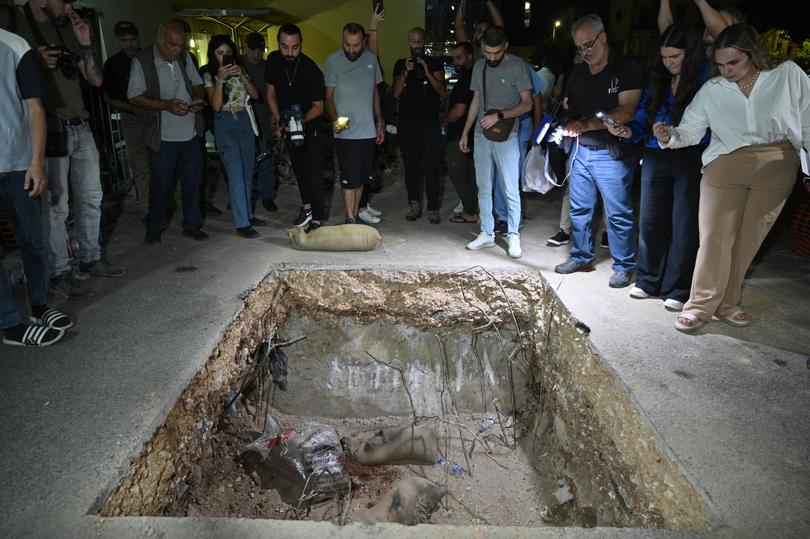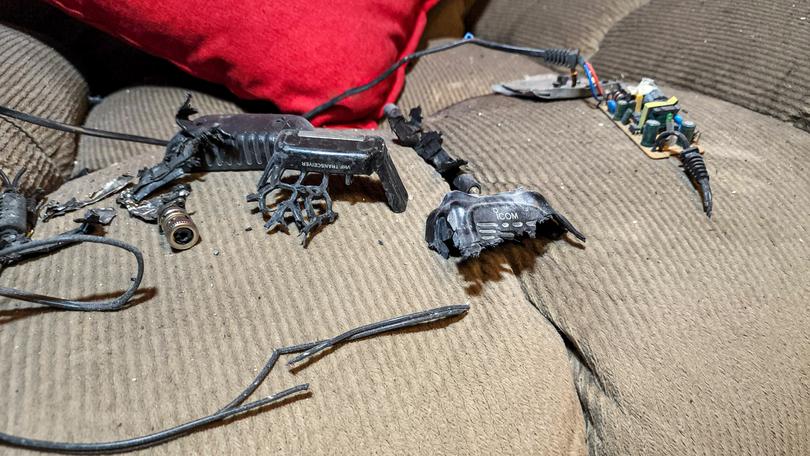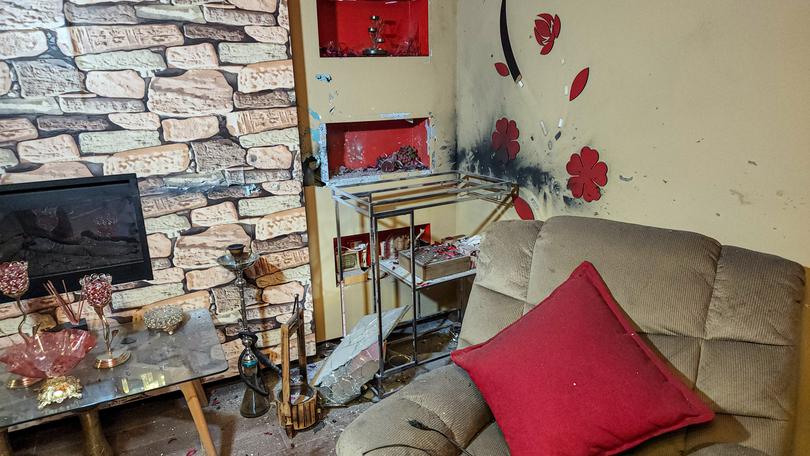Lebanon: Hezbollah walkie-talkies explode in new attack killing 20 people and injuring thousands
A deadly second wave of explosions has rocked Lebanon, as thousands of walkie-talkies exploded across the country in a new attack, heightening fears that all-out war is imminent.
A deadly second wave of explosions has rocked Lebanon, as thousands of walkie-talkies exploded across the country in a new attack, heightening fears that all-out war is imminent.
Hand-held radios used by militant group Hezbollah have detonated killing at least 20 people and injuring 450.
The second wave of explosions comes after thousands of pagers simultaneously exploded across the country on Wednesday, with the death toll for that attack rising to 12, tragically now with the inclusion of two children, with another 3000 injured.
Sign up to The Nightly's newsletters.
Get the first look at the digital newspaper, curated daily stories and breaking headlines delivered to your inbox.
By continuing you agree to our Terms and Privacy Policy.Hezbollah officials have said mainly walkie-talkies exploded but that phones and laptops were also involved in the fresh blasts.
Witnesses have described the carnage and terror of the explosions on Thursday, with people’s hands reportedly blown off, fingers destroyed and serious injuries to the eyes.

One walkie-talkie blast took place near a funeral organised by Hezbollah for those killed in the pager explosions.
A Reuters reporter in the southern suburbs of Beirut said he saw Hezbollah members frantically taking out the batteries of any walkie-talkies on them that had not exploded, tossing the parts in metal barrels around them.
Lebanon’s Red Cross said on X that it was responding with 30 ambulance teams to multiple explosions in different areas.
The group, which was thrown briefly into disarray by the pager attacks, said on Wednesday it had attacked Israeli artillery positions with rockets, the first strike at its arch-foe since the blasts wounded thousands of its members in Lebanon and raised the prospect of a wider Middle East war.
Images of the exploded walkie-talkies examined by Reuters showed an inside panel labelled “ICOM” and “made in Japan”.
According to its website, ICOM is a Japan-based radio communications and telephone company.
The company has said that production of several models of the ICOM hand-held radio has been discontinued, including the IC-V82, which appeared to closely match those in images from Lebanon on Wednesday and which was phased out in 2014.
The hand-held radios were purchased by Hezbollah five months ago, about the same time that the pagers were bought, a security source said.

Hezbollah has vowed to retaliate against Israel for the pager blasts, whose military declined to comment on the blasts.
The two sides have been engaged in cross-border warfare since the Gaza conflict erupted last October, fuelling fears of a wider Middle East conflict that could drag in the United States and Iran.
A full-blown war with Israel could devastate Lebanon, which has lurched from one crisis to another in recent years, including a 2019 financial collapse and the 2020 Beirut port blast.

Jordan’s Foreign Minister Ayman Safadi accused Israel of pushing the Middle East to the brink of a regional war by orchestrating a dangerous escalation on many fronts.
Hezbollah said in a statement it would continue to support Hamas in Gaza and that Israel should await a response to the pager “massacre” which left fighters and others bloodied, hospitalised or dead.
One Hezbollah official said the detonation was the group’s “biggest security breach” in its history.
The plot appears to have been many months in the making, several sources told Reuters.
It followed a series of assassinations of Hezbollah and Hamas commanders and leaders blamed on Israel since the start of the Gaza war.
Israel has declared it has moved to the next phase of it’s military action, but is yet to clarify in detail what that means.
- With Reuters
